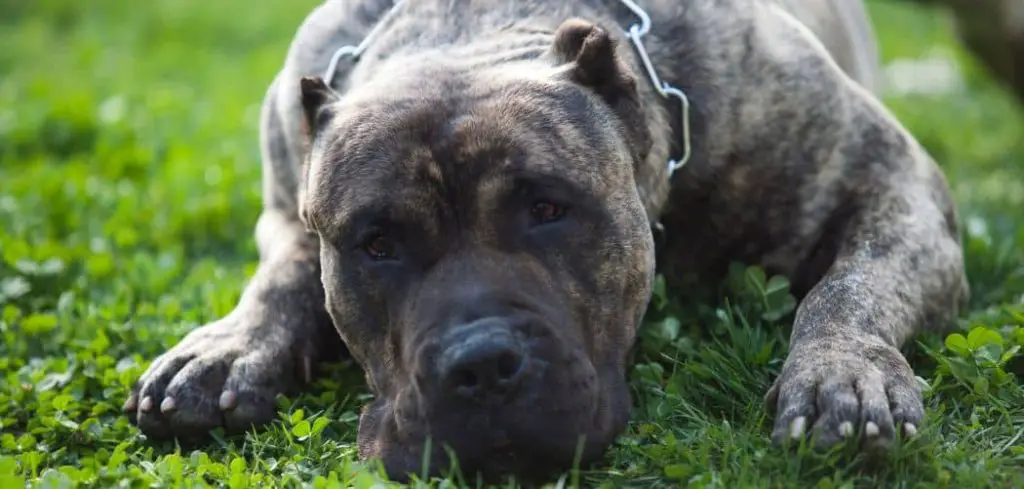When an old dog is not eating or drinking and is vomiting, it is a serious medical concern.
Loss of appetite, refusal to drink, and vomiting can rapidly lead to dehydration, weakness, and electrolyte imbalances.
We outline the common reasons why an old dog may not be eating or drinking and throwing up, what you can do at home, and when to seek veterinary help.
Old Dog Not Eating or Drinking and Throwing Up — Why It Happens
An old dog that is not eating or drinking and is throwing up often indicates gastrointestinal, metabolic, or systemic illness. Older dogs may experience conditions such as kidney or liver disease, pancreatitis, infections, gastrointestinal blockages, or toxicity.
Vomiting while avoiding food and water can quickly lead to dehydration, malnutrition, and worsening of underlying health issues, making prompt evaluation critical.

Old Dog Not Eating or Drinking and Throwing Up: Common Causes
Kidney Disease
Kidney dysfunction can cause nausea, vomiting, and decreased appetite.
Dogs may stop eating and drinking to avoid discomfort caused by toxin buildup. Other signs include frequent urination initially, lethargy, and weight loss. Prompt veterinary care, hydration support, and diet modification can help manage the condition.
Read more: Old Dog Not Eating or Drinking (Here’s Why)
Liver Disease
Liver problems often reduce appetite and fluid intake while causing vomiting.
Signs may include jaundice, abdominal discomfort, and lethargy. Drinking may be decreased due to nausea. Veterinary assessment is essential to identify the underlying liver issue and provide supportive treatment.
Pancreatitis
Inflammation of the pancreas can trigger vomiting, nausea, and food refusal.
Dogs may continue drinking small amounts but still avoid meals due to abdominal pain. Signs include lethargy, bloating, and occasional diarrhea.
Timely veterinary intervention is critical to prevent severe dehydration and systemic complications.
Gastrointestinal Blockages
Obstructions caused by ingested objects, tumors, or severe constipation can prevent food and water intake.
Vomiting is a common symptom, accompanied by abdominal swelling or restlessness. Blockages require immediate veterinary attention, often including imaging or surgical intervention.
Infections
Systemic infections, such as bacterial or viral illnesses, may reduce appetite and drinking while causing vomiting.
Other signs include fever, weakness, and lethargy. Older dogs are at higher risk of rapid deterioration without prompt treatment. Veterinary care with fluids, medications, and monitoring is essential.
Toxin Ingestion
Ingesting harmful substances can cause vomiting, anorexia, and reduced drinking.
Additional signs may include drooling, lethargy, tremors, or collapse. Immediate veterinary evaluation is critical to prevent organ damage and systemic toxicity.
Read more: Old Dog Not Eating but Drinking Water and Vomiting (Here’s why)
What to Do If Your Old Dog Is Not Eating or Drinking and Throwing Up
Provide a calm, quiet space for your dog to rest.
Offer small amounts of water or low-sodium broth to prevent dehydration. Avoid forcing food if vomiting persists.
Once vomiting subsides, offer bland, soft meals such as boiled chicken and rice. Monitor for signs of dehydration, lethargy, or worsening symptoms.
Document frequency of vomiting, water intake, and behavior changes to assist your veterinarian in diagnosing the underlying cause.
When to Call or Visit Your Vet
Seek immediate veterinary attention if your dog:
Refuses all food and water for more than 12–24 hours
Vomits persistently or shows blood in vomit
Appears lethargic, weak, or collapses
Has abdominal swelling, pain, or bloating
Early evaluation is critical to identify kidney or liver disease, pancreatitis, gastrointestinal blockages, infections, or toxin ingestion and provide timely intervention.
Read more: Old Dog Not Eating (Causes and what to do)
Key Takeaway
When an old dog is not eating or drinking and is vomiting, it signals potentially serious medical conditions.
At-home care includes hydration, rest, and small bland meals once vomiting subsides, but veterinary evaluation is essential.
Prompt diagnosis and treatment prevent dehydration, malnutrition, and further complications, keeping your senior dog safe, comfortable, and healthy.
